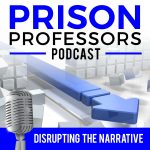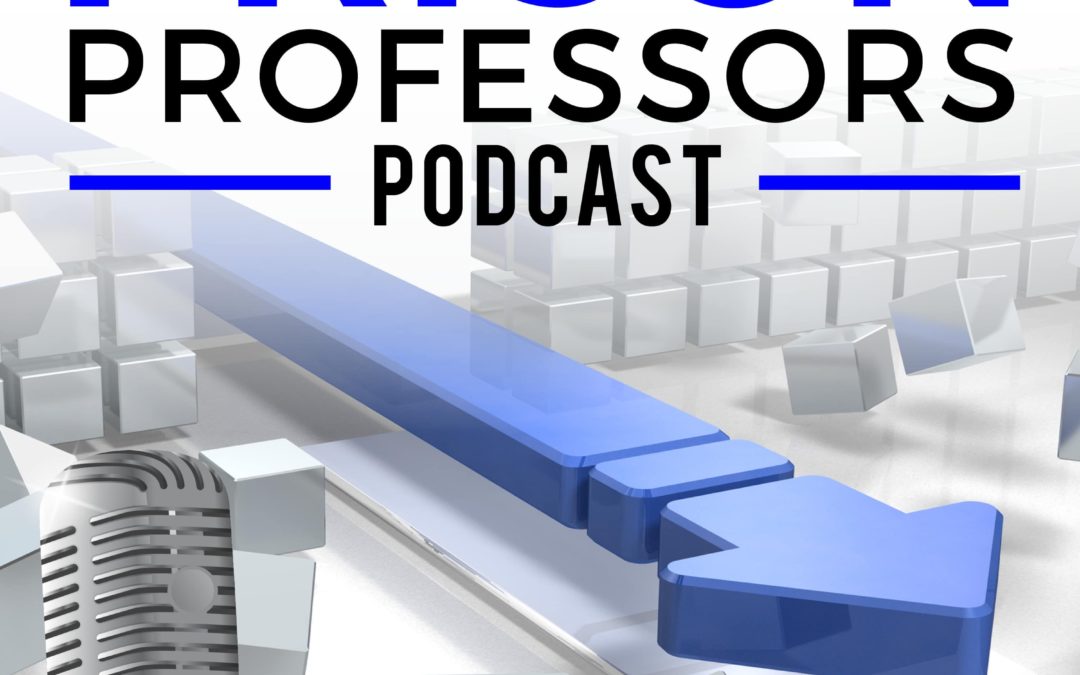How Important Is Post Offense Conduct?
Justin Paperny: Hi everyone, happy holidays. Justin Paperny, it’s been a little while since I’ve done a YouTube video. I’ve been very busy working alongside my new business partner Shon Hopwood and Michael Santos, and also serving a lot of wonderful clients. I’m going to get right into this video on post defense conduct.
Before I do, some really exciting changes coming. My partners and I are launching a prison professor podcast. I think we’re actually launching, today’s the 27th of December, I think we’re actually launching tomorrow. We’ve got 15 or 16 podcasts in the queue. If you have interest in sharing your story and participating on a podcast, we’d love to hear from you. I’ll probably edit and put something up here and give you a chance to reach out to a member of our team to see if you have some interest in joining our podcast.
We’re also going to be launching a very cool lawyer directory. I had bad experiences with lawyers initially. I ended up having great lawyers in the end, but I hired the wrong lawyers, I didn’t do my due diligence. Gave them too much money, there weren’t deliverables, there weren’t metrics, there was a clearly defined scope of work. I was nervous and scared. I’m not alone.
There have been a number of defendants who have had bad experiences with lawyers. We want to profile the best lawyers. We want to work with lawyers like David Rosenfield, Alan Eisner, Diane Bass or Mark Werksman and others who put their clients first. Part of the issue with finding a lawyer is it’s very easy to be overwhelmed by choice. In fact, really I’ve got to give credit to that quote from my business partner Shon Hopwood. Shon was on 60 Minutes a couple of months ago. I think in that 60 Minutes episode Shon said when he was released from prison, he was in a Walmart and he was overwhelmed by choice. I said, “That’s so beautifully said.” So many defendants when looking for a lawyer are overwhelmed by choice.
What we’re going to do is different than other review sites, that I’m sure do a good job. But a lot of those review sites feature every lawyer in America, any lawyer can join, anybody could write a review, anonymously or not. We’re going to do it differently. We are going to vet and invite the best lawyers in every district to be a part of our directory. We’re only going to have a handful in every district.

White Collar Defendants: How Important Is Post Offense Conduct?
I’m really excited about the directory. It’s coming out, so for those of you who need a criminal defense attorney or a civil defense attorney, you’ll be able to go through some of the ones that are one our site. Call, interview them and make an informed decision.
The podcast and directory are very exciting. Let me jump into the title of this video, post offense conduct.
There are really three things you can do with respect to post defense conduct. Certainly some of you can do what I did, which is live in denial and make awful and terrible decisions, I’ll get into that in a moment. Some of you can make matters worse. Some of you can do absolutely nothing, you cannot really improve your situation, you cannot weaken your situation, you can just sort of like be living in limbo for quite some time.
Defendants frequently ask me, “Justin, is it a good or bad thing my case was extended three or six months?” The answer is, well, it depends. How are you using this time? Are you making good decisions? You making bad decisions? Are you doing practically nothing? Are you deferring all of your decisions to your lawyer? There’s a reason, I’ve had clients this year get better outcomes with a public defender than some of their co-conspirators who gave hundreds of thousands of dollars to a criminal defense attorney. Sure, their criminal defense attorney was excellent, but why would a defendant who retained a lawyer, similar actions, similar case get a different outcome than a defendant who had a public defender, who didn’t have the means to hire a lawyer? It comes down to the actions the defendant took, how they articulated their own efforts, their own words, why they’re worthy of the best outcome. Those are defendants, really the third pool who are advancing their agenda.
Let’s transition to me for a moment. When I caught my case, to use some prison parlance, what was it? January, December of 2005. It’s been 12 years, what a journey. What a journey, so 12 years ago at this time, I was wrought with anxiety and fear about what was coming, what was going to happen. UBS was able to fire me. Investors who had lost money were beginning to call lawyers and call the FBI. It was starting to come undone. I had no idea what was really going to come. The only person in my community that had ever gone to jail was Michael Milken, and I didn’t have $500 million like him.
I wasn’t prepared for this experience, so I began to make some bad decisions by lying and deceiving. When did that begin?
The 20th of April, 2005, I’d go to jail three years to the day later, the FBI showed up at my front door. I retained a criminal defense attorney. I didn’t work openly with him. I’d lied to him. I didn’t really give him a chance to defend me.
A lot of lawyers get a bad rep, some of it is deserved, some of it is not. In this case, I did not give my lawyer a chance to properly defend me. Why? Why would I lie to my lawyer, who I gave so much money to? Am I insane? No. Am I stupid? Sometimes, I was making dumb decisions. Why? I wanted my lawyer to see me as a good person. I wanted him to see me as the USC baseball player, and the stock broker that managed money for professional athletes, and the youngest broker that [Barry Sterns 00:05:13] had ever hired. I hate talking about any past accomplishments, it’s so not like me. I don’t do any of the me promotion, I’m just trying to take you to my time and my culture and what I was thinking. I didn’t want him to look badly at him, so I lied to him.
Then I did the same exact thing with the FBI. When I interviewed with the feds, as we talked about post defense conduct in bucket one, making matters worse, when the interview began with the FBI I didn’t tell half truths, I just lied complete. I may have been honest about my name, Justin Matthew Paperny, born January 22nd, grew up in Encino, live in Studio City. I may have been honest about stuff that anyone in the world can find out, but when it came to my conduct and what I knew and what I did, and the role that I played in facilitating a fraud that turned investors into victims, I lied.

White Collar Defendants: How Important Is Post Offense Conduct?
I lied to them. I later learned it wasn’t perjury, I wasn’t under oath, but it was obstruction. Again, I wanted the FBI to see me as a good son, as an executive, not as someone who creates victims of others. So my post defense conduct was tragic. I don’t say irony, the tragic irony of it is, I don’t even know if irony is the right word. I even still get a little emotional talking about it 12 years later. When I came home from prison, the FBI invited me to lecture at the FBI Academy at Quantico, Virginia, to train new agents in law enforcement. It was quite an honor. I don’t think they have invited many people out of prison. I know Frank Abagnale, they filmed the movie Catch Me If You Can after him. I have a wonderful letter from Frank in my office, he reviewed some of my blogs and my book.
The FBI invited me to speak at the academy. Before I spoke that evening, the FBI agent who arrested me and later invited me to speak told the agents that, had I not lied to them in my interview, they never would have prosecuted me.
They were willing to let me go. Essentially they believed that I was a stock broken who turned the other way for commissions. It wasn’t until I had lied to them that, I think the phrase was, that was the sexiness they needed to know that I was a bad guy. Think about how different my life is. I did great things in prison. I learned from Michael Santos. He’s my mentor. I work with him, I work with Shon. I love my life. I love what I do. I love helping people. But I’m not insane, I wish I didn’t have to go to prison to learn all of these lessons.
So I say the same to you, if you’re indicted and you’re watching this, you’re under investigation, the last you may want to do is be watching my video, I totally get that. But you’re here and you’re preparing and you’re learning. I beg you to be different from me and profit from my losses and gain from my experience.
Ensure that your post defense conduct doesn’t involve lying or treachery and deceit and doing things that can make matters worse, because I know living in denial might provide moments or respite and may make you feel better at the time, but longer term it leads to disastrous consequences. Be different from me.
Post defense conduct can actually be fantastic. I look at clients of mine who have wonderful lawyers, where they have a public defender, public defenders often get a bad rep. They have a great public defender. But even clients of mine in the third bucket, who are not clients of mine, defendants who articulate through their own efforts why they’re worthy of the best outcome, who advocate for themselves. I know others on YouTube or elsewhere may claim they write narratives, that’s excellent. Review them. Speak to their clients to find out, how did the narrative help you? Was it in your PSR? What was the benefit? Did the judge comment it? What was the takeaway? What are the metrics associated with your advocacy? That’s accountability.
Those clients, whether they have the best lawyer in America or not, are always asking themselves, “What can I do to convey to the judge that I’m better than the worst day or worst decision of my life?” That’s when delays can be good. That’s when a three, six, nine or 12 months delay can be fantastic, when you are articulating a path forward, when you are working, when you are potentially saving up some money to pay restitution, when you are working openly and honestly with your government, when you are asking for honest and authentical … Authentical, that’s not even a word. I’ve written two book, I can’t even say the right word. When you’re asking for open and honest reviews, character reference letters from your friends, from those that love and support you.
If you’re going to have this delay, as many white collar defendants do, mine was three years, use every single day to advance your interest, to advance your agenda. I didn’t do that. I lied to the FBI, I lied to my family, I hurt them. I spent more money on lawyers than I should have. I was exploited. It just added to my list of regrets.
Of course I’ll close with the middle bucket of doing absolutely nothing. What is today? December 27th, I’ve got to wrap this up. I’m going to spend the day with my partner, Michael Santos, and some clients who are in town, so I’ve got to wrap this up.
The middle bucket is, again those who aren’t necessarily lying or dying bad things, but not really proactively managing the outcome. As I clearly articulate on the phone call with prospect or in a clearly defined scope of work, this only works, you should only consider our company, White Collar Advice and Prison Professors, you should only consider our work if you’re prepared to hold those whom you hire accountable. If you’re prepared to ask tough questions.
Some of the defendants that try to walk the fine line and don’t really want to do anything may say, “Justin, I hired the best lawyer. He’s a former US attorney. He’s been doing this a long time.” That all may be true, but as Judge Boo said in a video with Michael Santos, his opinion, 1% to 2% of what influences him comes from the lawyers, 98% comes from the defendant.
I’ve said this to prospects and clients, think about a Bernie Madoff, Charlie Manson, every murderer on death row had some lawyer extolling some virtue at their sentencing. They may have done it well, they’re paid to do it. I would argue the judge wants to hear from you. I’ve bet my career on it. There’s a myriad things that I could be doing, I’m frequently turning down opportunities but I choose to do this because I want defendants to do better than me and emerge from this wretched system more successfully than the data shows.
So you might not be doing anything wrong, might not be lying, I get it. Can you be more proactive? Can you won it? Can you talk about it? Can you grow your network? Build an online business? Rebrand authentically? That is the right word, authentically.
Try to get out of the middle. Hold that lawyer accountable. Ask tough questions, write the narrative, grow your network, save some money, build a business, just don’t default to just, “My lawyer’s a former US attorney.” If you do, that’s fine, we’re just not the right team for you. I’d rather have you know that now before we take the time to hop on a call and go through this process of potentially working together.

White Collar Defendants: How Important Is Post Offense Conduct?
We are for that defendant, those families who say, “Yeah, I know you don’t have a crystal ball. I know you’re not psychic. I know you don’t have a magic button to push.” Believe me, I’ve look, it would be awesome if there was one. That would be cool. We’re for the defendants who say, “Justin, I want to stand in front of the judge with dignity and be able to say,” as I’ve said before in other videos, “There’s nothing more I could have done to prepare for this moment. Regardless of whether I get six months in a halfway house or four months in a halfway house,” at the end of the day, as much you may not want to hear it, it doesn’t matter as much as you think. What matters most is what happens on the other side. What is life like when you come home? How is your family? How is your network? How is your business? How’s your finances? How’s your health?
All of that starts with, what are you doing each and every day as you inch towards a pre-sentence interview, my God I’m rambling. As you inch towards a pre-sentence interview and a guilty plea, reverse that, guilty plea, pre-sentence, sentencing and life inside of a federal prison.
That’s where I’m going to wrap up this video. I wish all of you a happy holidays and new year. I’m so grateful with your busy schedules and all that you have going on in your life, that you allow my team and I to help educate and teach you. I know you have other options. We take it very seriously. I hope you’ll find value in our podcast. Again, if you want to participate in our podcast I’m going to put up some note. Reach out to us. Of course if you’re looking for a criminal or civil defense attorney you’ll find value in our directory. Lastly, if you have a wonderful lawyer, and there are so many. If you have a terrific lawyer who has helped you, who has delivered, who has done everything he said he was going to do, would you send us his or her name? Because we’d love to reach out to him or her and invite them to be a part of this directory. Again, happy holidays. I wish you all well. Thanks for allowing us to teach you. Bye bye.
Justin Paperny
P.S. If you think your story is worth sharing on our podcast, send an email to podcast@prisonprofessors.com.

